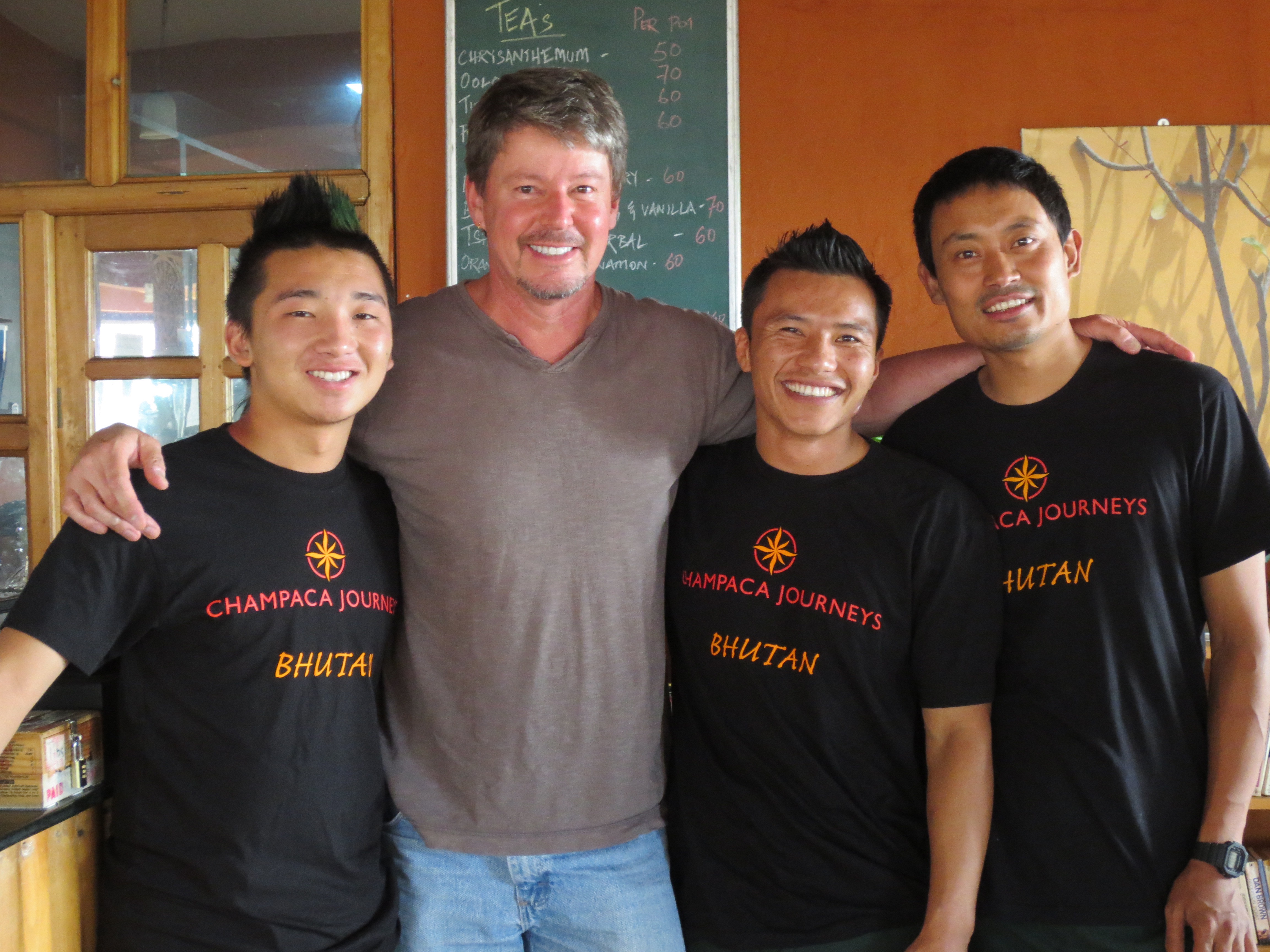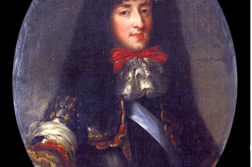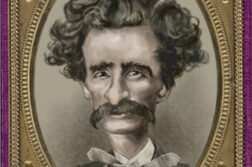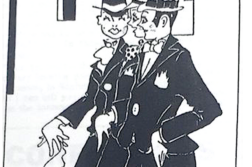ON MY FIRST VISIT to Bhutan in 2007, one of the participants on our trip asked our guide Dorji about gay people in Bhutan. Dorji’s straight-faced reply was “I don’t think we have gay people in Bhutan.” Our driver, Karma, smirked at this comment, saying that he thought otherwise. But it was common to hear such comments at that time. Bhutanese in general enjoy speaking with foreigners, and English has been an official language since 1960, so this response was not due to any language barrier. People would ask me if I was married or had a girlfriend, and my answer—that I’m gay and have a male partner—was always well received. In fact, I was often asked why my partner wasn’t with me. When I replied that gay marriage was not permitted in my state (at that time), several people remarked, “I am sorry for that.” But very few indicated that they knew anyone in Bhutan who was gay.
Bhutan is a small country in the Himalayas between India and Tibet, about the size of Switzerland, with around 800,000 inhabitants. One of the few countries in Asia never to be conquered or colonized by an outside power, the Kingdom of Bhutan existed in self-imposed isolation for centuries. It was the Chinese invasion of Tibet in the late 1950s that prompted the king of Bhutan to end this isolation and slowly modernize. The king emphasized modernization but not Westernization of his country. Roads were built; the first cars appeared, as did other modern conveniences, such as electricity and running water; hospitals and schools were built. It was decided that English would be the language of education, with Dzongkha (similar to Tibetan) the national language. While tourism has been allowed since the 1970s, the government limits the number of foreign visitors so as to protect the culture and environment. Bhutan feels unique, and it has come to be considered a “must see” destination due to its isolation and intact culture. Adding to the appeal are a friendly population of English speakers, beautiful scenery, and an official government policy of promoting the country’s “gross national happiness.”
I lead tours to Bhutan, so I have the opportunity to visit several times per year, and many gay couples have traveled with me. I alert my local counterpart and business partner, Dorji, who in 2007 opined that Bhutan has no gay people, about the sleeping arrangements for guests. He became accustomed to reserving single matrimonial beds for same-sex couples. Neither he nor any hotel staff ever reacted adversely to this. Over the years, Dorji and I have had many conversations about gays in Bhutan. He truly had never met any, aside from the tourists that accompanied us. He reasoned that people feel the need to conform to societal norms, which emphasize marriage and family, so gay Bhutanese probably married people of the opposite sex or remained single and silent about their true nature. His opinion was that this would change, just as other aspects of Bhutanese society have changed.
Buddhist Bhutan is very pro-sex, a stark contrast to some neighboring countries. Marriages are not arranged. Women and men often begin to have sex at an early age, and there seems to be no stigma attached to a woman not being a virgin upon marriage. I am told that parents assume their sons and daughters will commence sexual relations when teenagers. Bhutan is one of the few countries where both polygamy and polyandry are practiced. One of Bhutan’s favorite saints, Drukpa Kunley (1455-1529), translated into English as The Divine Madman, was a holy proselytizer known for his sexual exploits. All over Bhutan, phalluses—always erect, sometimes ejaculating—are painted on buildings and houses to commemorate him. It is said that the lax attitude that Bhutanese have towards sex is one of his legacies. The government makes condoms available free to all, both as part of its active family planning program and to curtail STDs. On the streets in Bhutan one sees groups of men and women with their arms thrown around each other nonchalantly walking along the streets, and in bars one can see groups of same-sex friends cozying up to each other. Physical affection between friends of the same sex is commonplace, and a foreigner could be forgiven for thinking these are gay friends or couples hanging out together.
Officially, however, gay sex is illegal in Bhutan. Article 213 in Chapter 14 of the Penal Code of Bhutan states: “A defendant shall be guilty of the offence of unnatural sex if the defendant engages in sodomy or any other sexual conduct that is against the order of nature.” This transgression is punishable by a prison sentence from one month to less than one year. Even though Bhutan was never part of the British Empire, this law is a holdover from the colonial era in India, which was of course a British colony and incorporated many English laws into its constitution. When Bhutan wrote its constitution, it adopted much of it from India. However, it must be stressed that this law has never been used to prosecute anyone in Bhutan.
In 2008, the private newspaper The Bhutan Observer printed an article titled “How Gay Are Bhutanese Gays?” The article said that gays in Bhutan are largely quiet and closeted and that there is no Western-style gay rights movement in Bhutan. It did not condemn homosexuality or call it un-Bhutanese, though it implied that the absence of a gay rights movement was due to the nature of Bhutanese culture, which regards sex as a private matter that’s not openly discussed. While the article was pro-gay, more interesting were the responses in the paper’s on-line forum. Most of these replies—and they went on for months—seemed to be written by heterosexual Bhutanese who stated that it was time for Bhutan to align its policies with the rest of the world and recognize and accept gay Bhutanese. A few writers condemned gay people, but they received rebuttals calling them un-Buddhist and bigoted.
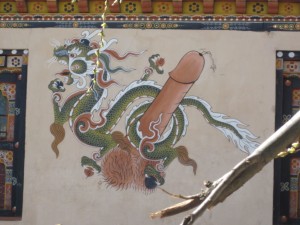
But where were the gay people themselves who might enlighten me about their experiences? A few Bhutanese friends told me they knew of some gay people, but no invitations to meet these people were ever forthcoming. What I inferred from this was that most Bhutanese gays were closeted. In 2012, I did begin to meet a few through foreign friends and via the website Planet Romeo. Fewer than 100 Bhutanese are on this site, and almost none of them post a face picture. Not long after I registered I began to receive messages from gay men. All asked me to not tell anyone their secret. And why is your being gay such a secret, I would ask? Buddhist Bhutan has no holy book that condemns homosexuality, and Bhutan seems a very tolerant and non-judgmental country. I asked whether they feared violence or loss of job or housing. No one said these were concerns. Their reluctance seemed to revolve around the idea that “people would talk.” Homosexuality was something people were unfamiliar with, so it would set them apart from what was common and expected in this traditional society. Coming out would be embarrassing, the family might feel ashamed of them, and they feared being ostracized. Bhutan has but 800,000 inhabitants, and everyone is closely interconnected. Often when I introduce two friends to each other, they discover in a matter of minutes that they have mutual friends or relatives. This serves as social glue to hold society together, but it also means that anonymity is impossible, and it’s difficult to keep a secret. Behave badly or break the social rules and it quickly becomes known. Also, as in many Asian societies, family is very important, and marriage and procreation are seen as de rigueur.
The year 2013 was a pivotal year for gay visibility in Bhutan. Facebook, which is widely used by the Bhutanese, saw the formation of several groups dedicated to gay people: Gay in Bhutan, lgbtq Bhutan, and Hot Gay Bhutan all appeared in a short space of time. Through these websites I met several gay Bhutanese. And while no one was officially out, none seemed painfully closeted. Most said they found it easy to find sex partners—including both single and married men, some of whom claimed to be heterosexual.
The closet door in Bhutan seems to be slowly swinging open. In the past several years, the privately owned Bhutan Observer and Bhutan Business, as well as the government-owned Kuensel, have run stories about gay Bhutanese. They are unbiased and informative, seemingly written to let readers know about the existence of gay Bhutanese and the struggles they face. The struggles seem to be largely their sense of isolation and lack of societal recognition rather than persecution.
In September 2013, Member of Parliament Sangay Khandu stated: “The country will have to revisit its laws criminalizing gay sex as attitudes change towards LGBTI.” Dasho Neten Zangmo, the highly regarded anti-corruption minister, was the first senior Bhutanese government official to make a comment about gay Bhutanese, in August 2014, when she said in a speech to a packed hall of high school students: “Romantic relationships, by the way, can be boy-boy or girl-girl.” In 2015, Dzongsar Khyentse Rinpoche, one of the highest Buddhist lamas, gave a well-attended lecture in which he compared sexual orientation to a preference for one type of cheese over another. He added that Bhutanese should not merely tolerate gay people but should respect them. These pronouncements were not met with any sense of disapproval from ordinary Bhutanese.
Not only government officials but also several well-known heterosexual personalities weighed in on the matter. Journalist, singer, and documentary filmmaker Kencho Wangdi eloquently stated: “Being gay is a human truth. And the sooner we can accept this, the better for us as a society to move on. … So here is a shout-out from me to all the gays in Bhutan: being gay is all right. Be proud of who you are. Be positive, face the sun. Know your birthplace is a vineyard with fruit for all.” TV personality and journalist Namgay Zam said: “It’s not wrong to be gay. It is wrong to judge people who are gay. It is time for equality.” And Farmer Sangay, the face of organic farming in Bhutan, stated, “My name is Sangay, but I am not gay! I would support them and feel they do deserve all the rights of any human being.”
While there have been no anti-gay public statements from officials or others, a poll of 150 students at Royal Thimphu College, Bhutan’s only private university, demonstrated that homosexuality was not universally accepted. Respondents were equally divided between those who said that gays should be accepted and those who said that homosexuality is immoral.
While Bhutanese gays understand and use the word “gay,” many activists prefer the culturally neutral term “MSM” (men who have sex with men). The press often uses the term “Third Gender” when referring to gays. In popular usage, effeminate-acting men are often called by the derogatory term “chhakka.” The word “phomenmomen,” meaning not male and not female, is used to label a gay person, but a more correct translation is “intersex.” Gay Bhutanese do not like or use this word. This year the Dzongkha Development Commission, which (much like France’s Académie Française) seeks to promote and protect the Dzongkha language and introduce new words, announced Dzongkha terms for lesbian, gay, bisexual, transgender, homosexuality, and homophobic. Gay men themselves use English terms to describe themselves: “gay king” is an older top, “gay queen” is an older bottom, “freaking prince” is a young top, “freaking princess” is a young bottom, and “closet celebrity” refers to a closeted man that everyone knows is gay.
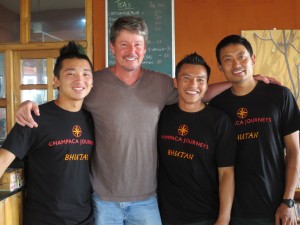
Last year, Passang Dorji, a 27-year-old physical therapist who has been Bhutan’s principal gay activist, decided to come out to a wider public. He did so last March in a thirty-minute interview on Bhutan Broadcasting Service, one of two Bhutanese TV channels. The interview was conducted in Dzongkha, the national language. Dorji told the interviewer that he was tired of living his life in the closet. He first told his parents, friends, co-workers and boss. Next he consulted with lawmakers and parliamentarians to be certain that he would not face legal prosecution. Dorji says that, with very few exceptions, everyone supported him, and that he was sent word from the Health Secretary stating that he had his support. The secretary requested that he not speak too much about HIV, as he did not want homosexuality and HIV to be equated and further stigmatized. Dorji reports that the interview made him something of a celebrity, and people now recognize him on the street. When I ask Bhutanese if they know Passang Dorji, more than a few have replied, “You mean the gay guy?” Dorji is a personal friend of mine, and we have discussed gay issues in Bhutan at length. Gay Bhutanese can certainly be proud of having such an intelligent, articulate, and brave spokesperson.
Also last year, in May, Bhutan observed International Day Against Homophobia, Transphobia and Biphobia for the first time. In November, the Ministry of Health and the National HIV/AIDS Control conducted a one-day symposium on mental health, suicide, and substance abuse among sexual and gender minorities. In December, a two-day International Sexuality Seminar was held at the Paro College of Education. Passang Dorji presented a paper for which he received a standing ovation. Several articles appeared in the local press about GLBT issues in Bhutan, one titled “Reaching Out to the Invisible Third Gender.”
While the government and media do not demonize or disparage gay people, Bhutan is still far from being a Shangri-La for its gay citizens. Most are still closeted; some have faced bullying when in school for signs of effeminate behavior. Teasing and bullying seem to haunt boys and young men who do not exhibit suitably male behavior in school, and they do not receive protection from teachers and school staff. There is no program to sensitize teachers or authorities to the social problems that gay children may face. Most gay people admit to feeling a sense of isolation, as they have no peers with whom to discuss their feelings. The younger generation is aware that gay men and women enjoy a state of acceptance and equality that Bhutan is far from achieving to date. Many tell me they would like to leave, but this is not financially feasible for most.
While the pressure to remain in the closet is intense, at least a few gay Bhutanese live relatively uncloseted lives and seem none the worse for it. Those I know say that while they do not advertise, neither do they deny their sexuality, and being out has not been a hardship. It’s the actual coming out that was the most difficult step, and their bravery for taking it was outstanding. Of course, the people who spoke to me about it were the ones who had a successful coming-out experience, while those who tried and failed to come out, or who remain closeted, remain hidden from view.
On balance, we find in Bhutan a curious situation in which the authorities seem receptive to GLBT equality, with a sympathetic press and vocally supportive public figures, yet gay Bhutanese are not out in large numbers or politically organized. In the analysis of Passang Dorji, gay people continue to self-stigmatize—a response to traditional norms—and remain closeted and isolated. Bhutan has no large cities where gay people can congregate and live in anonymity. In Bhutan, the prying eyes of family and friends are all around. The circumstances that led to gay liberation in the U.S. and Europe are not present here for cultural and demographic reasons.
From my experiences and observations in Bhutan, this seems like a pivotal time in the evolution of gay rights and the gay movement, to have gone from almost total invisibility to societal and governmental acceptance in the short span of eight years. There has been no gay rights revolution in Bhutan, but the closet door has been swinging open. It will be interesting to see whether the gay rights movement in Bhutan catches up to the official position of tolerance in the years to come.
John Leupold is the CEO of Champaca Journeys and the leader of many trips to Bhutan.


